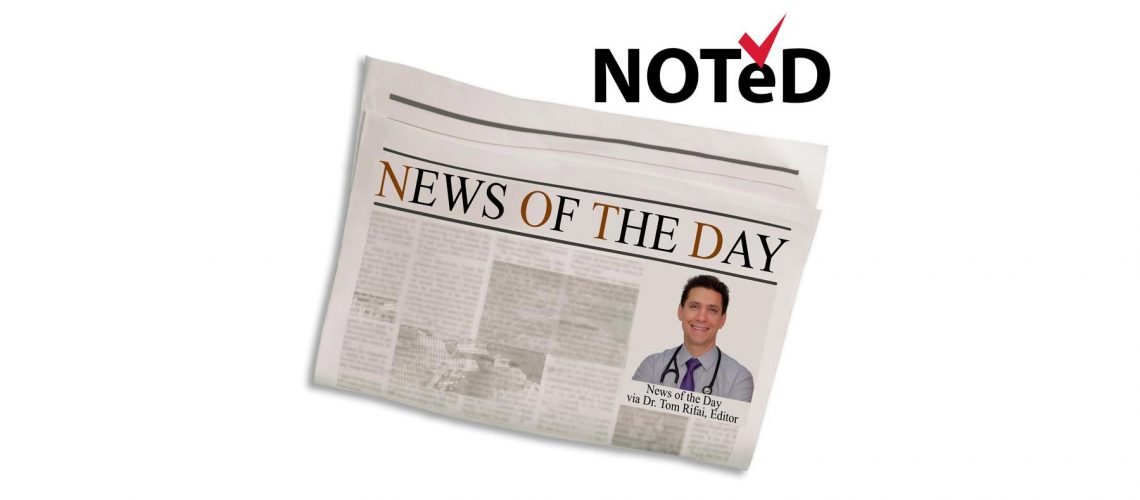Home » NOTeD: Eating Breakfast May Protect Against Cardiovascular Disease
NOTeD: Eating Breakfast May Protect Against Cardiovascular Disease

IN TODAY’S MEDICAL NEWS: Eating Breakfast May Protect Against Cardiovascular Disease
WHAT THE STUDY REALLY SHOWED:
That eating breakfast was associated with an average 22% lower relative risk of cardiovascular disease, and 25% lower total mortality risk, with no proof of how much of that reduction was caused by breakfast eating, if at all. So “may protect” is technically correct. But we must lean on the may heavily.
EDITOR’S COMMENT: While we need observational studies to provide us guidance as to where causal relationships may be – they do not prove cause and effect. And when we presume they do, the relationships – such as cancer and smoking, which increase the observed relative risk of cancer by 15-30 times vs non-smokers – are so overwhelming that they essentially prove cause-and-effect. Keep in mind that double the risk would be two times the risk. So let me now repeat, smoking increases the risk of cancer by fifteen times at least. That is an observation as iron clad as “observing” some gets burned by fire. Most observational studies, though, show small relative risks and are often subject to forms of confounding, including reverse causality. For instance, eating breakfast less often or not at all may be caused by disease rather than cause disease. We saw this in the observational PURE study where reduced sodium intake was not actually causing people to be sick, but a reflection of them being sick (reverse causality) in the first place.
Notably, the investigators for this breakfast study were partly right when saying: “…what to eat …was ignored. Different food and beverages, such as cereals, red meat, eggs, milk and coffee, may have different effects. We cannot provide a best plan for breakfast.” To be true to science, that last sentence should’ve said “…we cannot provide the best plan for, or whether to even eat, breakfast from this data as we’ve not proven cause and effect, but it is intriguing.”
BOTTOM LINE: Eating Breakfast May Protect Against Cardiovascular Disease, IF…
Any advantage of eating breakfast, outside of whether one is even actually hungry, is tiny versus what we eat. For instance, let’s say you’re not hungry for a while after you wake up. But due to this study you make sure to eat a “big (fast food) breakfast” of salty, saturated fat rich and calorie-dense sausages with whole eggs fried in butter and pancakes with sugary syrup. Don’t believe for one iota of a second that it wouldn’t be healthier to wait until you are actually mild to moderately (avoid severely) hungry – let’s say that happened to be 2.5 hours after awakening – and then have an “early lunch” of salad greens, chopped onions, egg whites and bell peppers with beans and/or walnuts and two teaspoons of extra virgin olive oil with balsamic vinegar (or a bazillion other combinations of plant predominant food choices!). Health is driven by what we eat FAR more than when. Eat when mild to moderately hungry and stop when mildly (i.e., comfortably) full is the most important over arching guide to how to eat. Regarding what to eat, that’s essentially summarized well by Michael Pollen, whom I’ll paraphrase: “eat (real) food, mostly plants.” This study does nothing to change that. Period.
CEO, Reality Meets Science®

